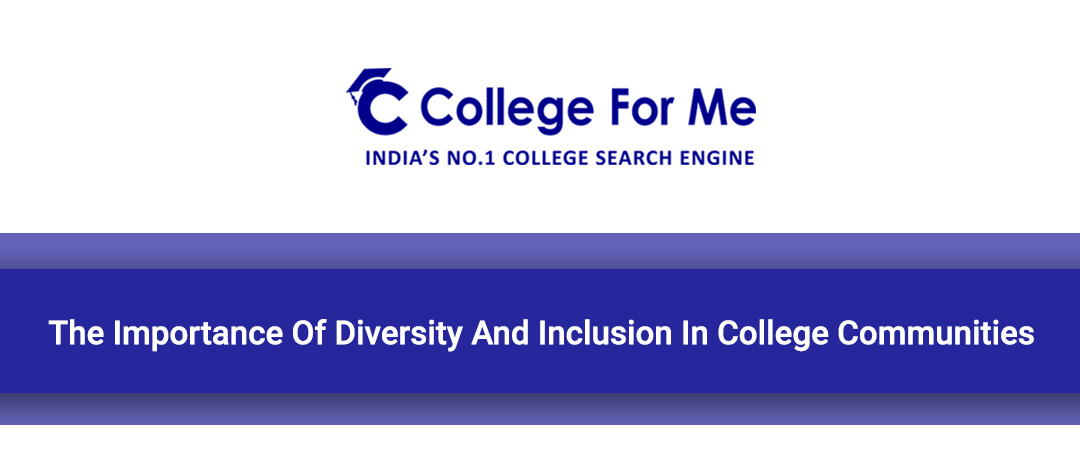Career Scopes Of A B.Tech. Student
There is a high demand for B.Tech. degree holders in the private sector, yet, there is also the opti...

College is often seen as a time of personal growth and exploration. It's a time when students are exposed to new ideas, cultures, and perspectives. However, in order to fully embrace these opportunities, it is essential that college communities prioritize diversity and inclusion. In this blog post, we will explore the importance of diversity and inclusion in college communities and the ways in which they can be fostered.
Experiencing Different Perspectives
Diversity and inclusion allow students to experience different perspectives that they may not have been exposed to otherwise. College is a time when students are developing their own identities and beliefs, and being exposed to a wide range of perspectives can help to broaden their understanding of the world. It can also help to challenge stereotypes and biases that students may have held previously.
Encouraging Critical Thinking
When students are exposed to different perspectives, it can encourage critical thinking. By analyzing and evaluating these perspectives, students are able to develop a more nuanced understanding of complex issues. This can also help to develop their problem-solving skills and prepare them for success in their future careers.
Creating a More Inclusive Community
When colleges prioritize diversity and inclusion, it creates a more welcoming and inclusive community. Students from all backgrounds feel valued and supported, which can have a positive impact on their academic performance and overall well-being. It can also foster a sense of belonging and help to build meaningful connections between students.
Preparing Students for a Globalized World
In today's globalized world, it is essential that students are able to navigate diverse environments. By prioritizing diversity and inclusion, colleges are preparing students for success in a multicultural world. This can be especially important for students who plan to work in fields that require cross-cultural communication and collaboration.
Promoting Social Justice
Diversity and inclusion also play a critical role in promoting social justice. Colleges have a responsibility to address issues of inequality and injustice in their communities, and this begins with prioritizing diversity and inclusion. By creating a more inclusive and equitable environment, colleges can help to break down systemic barriers and promote greater social justice for all.
In conclusion, diversity and inclusion are essential components of any college community. By fostering a culture of respect, understanding, and inclusion, colleges can create an environment that is welcoming and supportive for all students. This, in turn, can have a profound impact on their academic performance, personal development, and future success.

There is a high demand for B.Tech. degree holders in the private sector, yet, there is also the opti...

If you are looking for a bright and prospective career, then getting a B.Tech. in CSE must be under ...
Comments (0)